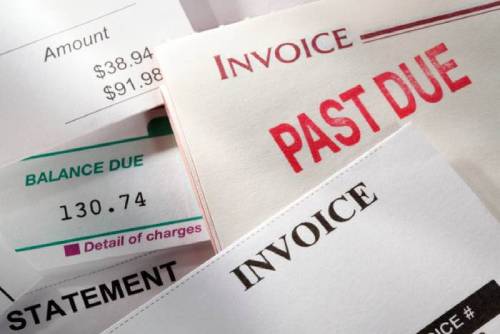You’re doing your best to keep up with debt repayment. But sometimes, you can accidentally overlook certain debts. Debt collectors will notice, and they may start contacting you to ask you to pay those overdue debts. Debt collectors might make threats regarding your federal benefits, or call you over and over to the point of harassment. When you are stressed about debt, you can suffer financially, mentally, and physically.
If you’re in your elderly years, you may want a little extra help managing your debt on top of other senior-related financial details, like retirement and estate planning. Knowing where to start to protect yourself against debt, and to avoid those pesky debt collection calls, is a huge step in the right direction!
Debt collection laws
The first step toward staying safe against debt is understanding how the laws about debt collection work, including what debt collectors can and cannot do when they’re trying to collect on a debt.
 Debt collectors may do the following:
Debt collectors may do the following:
- Ask you to pay your debts, even expired ones.
- Sue you for payment on a debt if you refuse or have not complied in a timely manner.
- Negotiate with you for a lower payment plan.
- Sell your debt to other collections agencies.
- Pressure you with frequent contact via phone or mail, or even threaten lawsuits.
According to the Fair Debt Collection Practices Act, debt collectors may not do the following:
- Make threats to physically harm you or your loved ones.
- Use inappropriate or obscene language to scare you into submission.
- Call you before 8 a.m. or after 9 p.m. without your express permission.
- Make threats to garnish your retirement benefits.
- Call you at work. It is illegal for them to call you at work if they know that your employer prohibits you from receiving such communications.
- Make repeated phone calls in a row with intent to annoy, abuse, or harass you.
- Try to collect a debt that was owed by a now deceased family member, wherein you were not a co-signer or did not agree in writing to be responsible for the debt.
You are protected by several debt collection laws that serve to keep collectors from taking advantage of you—and if you are a senior, this information also applies to you!
- Debt collectors can attempt to collect debts that has exceed the statute of limitations in most states, but they may not sue, threaten to sue, or threaten other legal action. However, if you make a payment or you acknowledge that you owe the debt, the time period may restart.
- If you have a time-barred debt, a collector is not allowed to sue or threaten to sue you for that debt.
- Debt collectors cannot collect debts that were owed by a deceased spouse or loved one. However, if you co-signed with your now deceased family member, or if you agreed in writing to be responsible for payment of that debt, you may be subject to paying that debt.
- Debt collectors are not allowed to garnish income from your government accounts.
Knowing what debt collectors can and cannot legally do will empower you to respond appropriately when you receive those phone calls or letters in the mail.
 Is there debt forgiveness for seniors?
Is there debt forgiveness for seniors?
There may not be specific elderly debt collection laws or debt forgiveness options especially for seniors. However, seniors have options just like anybody else!
You can consider a reverse mortgage. This process requires you to relinquish equity in your home in exchange for regular payments. To qualify for a reverse mortgage, you’ll need to be 62 or older, be able to afford monthly payments on your house, and have decent amount of equity in your home. That’s why a reverse mortgage may be a particularly good option for seniors.
Credit card forgiveness for customers
If you owe $10,000 or more in credit card debt, most debt collection companies may agree to settle your debt at a rate you can afford. You may also qualify for credit card debt forgiveness if your debt far exceeds your income rate, meaning you would struggle to pay it off and creditors wouldn’t receive the funds they are seeking if they don’t settle. Significant financial hardship could also qualify you for credit card debt forgiveness; if you lose a job or become medically disabled, collection agencies may settle with you.
Can Social Security be garnished for credit card debt?
No. Debt collectors are not legally allowed to garnish your Social Security income or benefits if you don’t pay off your debt. They’re also not allowed to threaten garnishment of your retirement income. So, if a debt collector says that they could sue you for your Social Security or retirement income, let them know that you’re aware of the laws and they have no right to make those threats!
If you owe money, you still may need to pay it. So don’t forget about those old debts!
Ask yourself a few questions to see if you have any old debts:
- Did you go into debt on behalf of a loved one, such as purchasing a car for them or paying some of their big bills?
- Have you noticed a higher balance on your credit card that you don’t remember charging?
- Did you cosign on a loan with a friend or family member?
Have these questions helped you remember some potential sources of debt that you may have forgotten or not known about? It’s worth your time to double-check your records, contact your financial institutions, and see what can be done to pay off those old debts.
Debt protection steps you can take
It’s good to know your own responsibilities about debt. Since you agreed to repay borrowed money, you must keep up with the payment plan that you agreed upon with your creditor. This includes checking and managing your account, promptly letting the creditor know about potential problems, and coming up with solutions if you are unable to pay.
For help with debt repayment, you can seek in-person credit counseling and credit repair services from a reputable organization. These will give you the advice, steps, and plans you need to start repaying your debt and getting out from under those annoying collections calls. If those collection agents have overstepped their legal bounds, you can send a cease-and-desist letter to their company.
Debt is a scary thing to deal with alone, especially if you don’t know all the legal requirements and rules. That’s why LegalShield is here to help. Our personal and family legal plans give you as our member access to a provider law firm. Our experienced provider law firms protect and empower members with personal consultation, advice, document review starting at up to 15 pages each, a phone call or letter if determined necessary, and other services concerning your debt repayment process. Your LegalShield Membership includes having a Will prepared as part of the membership. Gain peace of mind as you navigate debt today with a LegalShield Membership!
While you’re at it, find out how you can protect yourself against elder financial exploitation.
Pre-Paid Legal Services, Inc. (“PPLSI”) provides access to legal services offered by a network of provider law firms to PPLSI members through membership-based participation. Neither PPLSI nor its officers, employees or sales associates directly or indirectly provide legal services, representation, or advice. The information made available in this blog is meant to provide general information and is not intended to provide legal advice, render an opinion, or provide a recommendation as to a specific matter. The blog post is not a substitute for competent legal counsel from a licensed professional lawyer in the state or province where your legal issues exist, and you should seek legal counsel for your specific legal matter. Information contained in the blog may be provided by authors who could be a third-party paid contributor. All information by authors is accepted in good faith, however, PPLSI makes no representation or warranty of any kind, express or implied, regarding the accuracy, adequacy, validity, reliability, availability, or completeness of such information.





